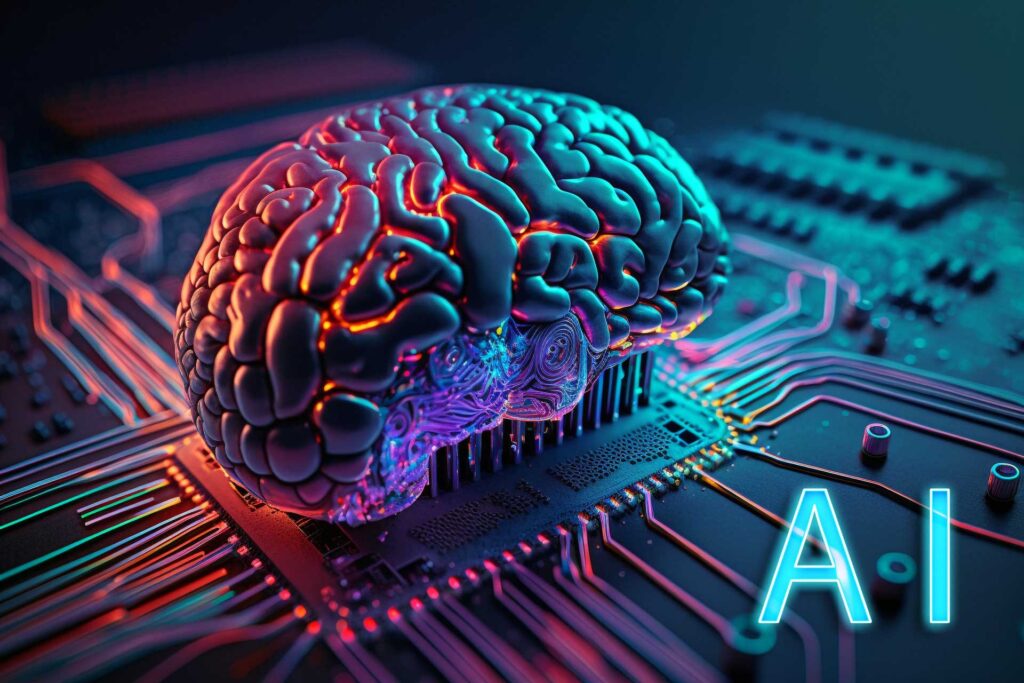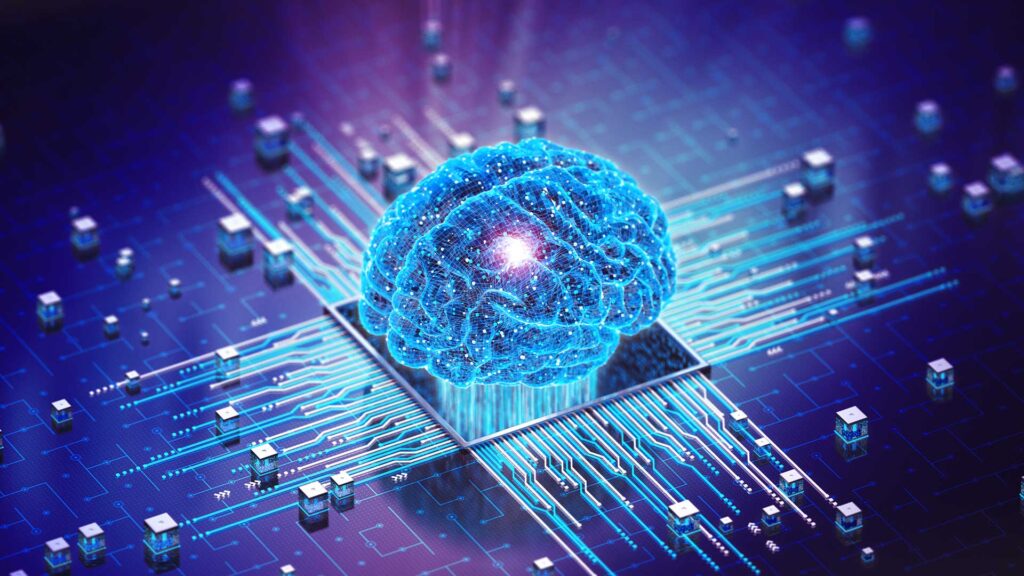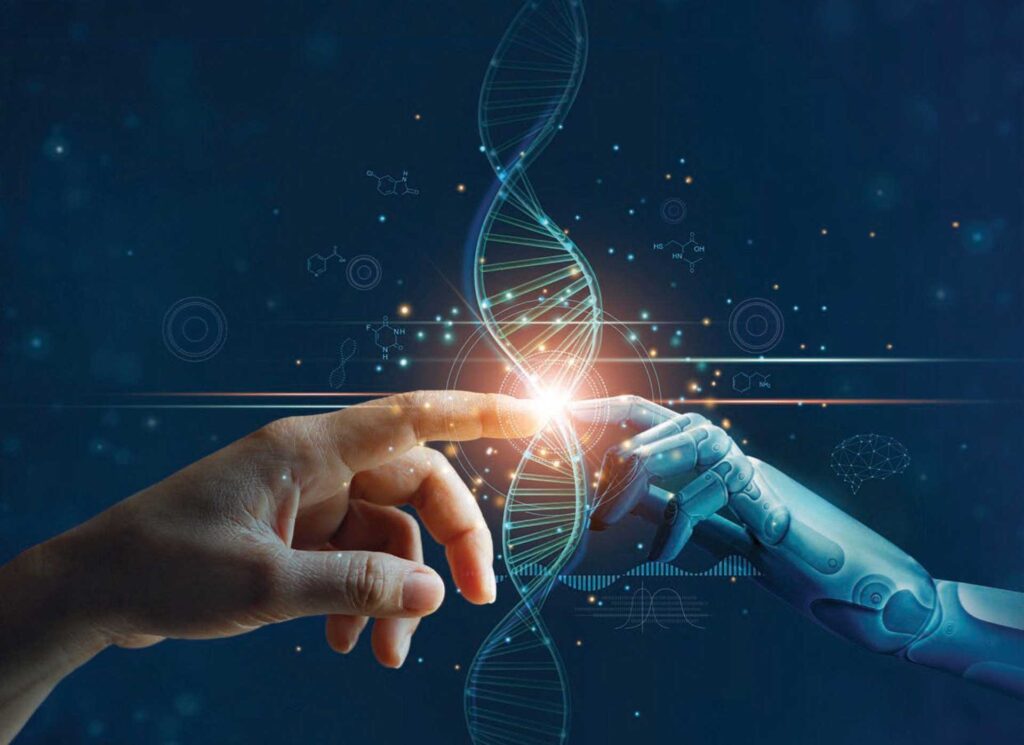
The scientific landscape is undergoing a rapid transformation as a result of the impact of artificial intelligence (AI), which has the potential to revolutionize our understanding and discovery of the world. While AI has been a part of research for many years, its influence has significantly increased since 2015, impacting nearly all scientific fields such as biology, chemistry, geology, and physics. The ability of AI to address intricate issues that have long perplexed scientists, such as the prediction of protein structure, is the primary factor driving the recent increase in its adoption. This article will delve into the thrilling realm of AI in science, examining its applications, benefits, and prospects.
Scientific Applications and Impact of Artificial Intelligence
1. Firstly, data analysis: Artificial intelligence algorithms are capable of rapidly processing and analyzing immense quantities of data, thereby identifying patterns and correlations that may be invisible to human researchers.
2. Again, Predictive Modelling: AI-powered models are capable of predicting intricate phenomena, including climate patterns, protein folding, and material properties.

3. Image and Signal Processing: Artificial intelligence (AI) has the capacity to enhance and analyze images, as well as process signals, to extract valuable information in disciplines such as astronomy, medicine, and materials science.
4. More specifically, in laboratory environments, AI-powered robots can assist scientists by automating tasks and freeing up time for more strategic research.
5. More importantly, the simulation and modeling. Artificial intelligence (AI) can simulate intricate systems, thereby enabling researchers to test hypotheses, predict outcomes, and optimise processes.
Areas of Science and Impact of Artificial Intelligence
1. The first is in astronomy: Astronomers are utilizing AI-powered algorithms to analyze large datasets, identify exoplanets, and predict celestial events.
2. Importantly, in the field of biology, researchers are using AI to analyze genomic data, infer protein structures, and identify potential drug targets.
3. Moreso in chemistry: We are using AI-powered models to optimize synthesis processes, design novel materials, and predict chemical reactions.
4. Climate Science: AI is assisting climate scientists in the analysis of large datasets, the prediction of climate patterns, and the identification of areas with a high level of climate risk.
5. Medicine: Researchers are using artificial intelligence (AI) to analyze medical images, predict patient outcomes, and identify potential drug targets.

Advantages of Artificial Intelligence in the Field of Science: Impact of Artificial Intelligence
1. Enhanced Efficiency: Artificial intelligence (AI) has the potential to automate routine duties, thereby freeing up time for scientists to concentrate on more strategic research.
2. Increased Accuracy: AI-powered algorithms are capable of analyzing data with a greater degree of accuracy and objectivity than humans, thereby minimising bias and errors.
3. Also, Improved Collaboration: AI can facilitate collaboration among scientists by establishing a shared language and framework for data analysis and interpretation.
4. Again, Accelerated Discovery: Artificial intelligence (AI) has the potential to expedite the discovery process. AI achieves this by identifying patterns and correlations that human researchers may find challenging to identify.
Prospects for Artificial Intelligence in Science in the Future
1. Firstly, there will be increasing adoption. We anticipate an increasing implementation of AI across a variety of scientific disciplines, thereby accelerating progress and stimulating innovation.
2. Secondly, there has been progress in explaining complex data. As AI becomes more prevalent in the field of science, there will be an increasing demand for AI models that can provide a clear understanding of their decision-making processes.
3. Thirdly, we anticipate an increase in collaboration between humans and AI systems. We expect the future of AI in science to involve a greater degree of collaboration between humans and AI systems. This will enable scientists to concentrate on strategic decision-making and advanced thinking.
4. Lastly, Ethical Considerations: As AI integrates more deeply into the scientific process, there will be a growing need for ethical guidelines and regulations. This will ensure its responsible and beneficial use for society.
Conclusion: Impact of Artificial Intelligence on Science
Firstly, using artificial intelligence, researchers can analyse intricate data, identify patterns, and make significant discoveries. In addition, this will thereby revolutionize the scientific landscape. Also, we can anticipate substantial advancements in a variety of scientific disciplines as AI continues to develop. Generally, the scientific process will increasingly integrate A.I. Nevertheless, it is imperative to address the ethical concerns associated with AI in the field of science. To be able to guarantee that these technologies are employed responsibly and for the greater benefit.









